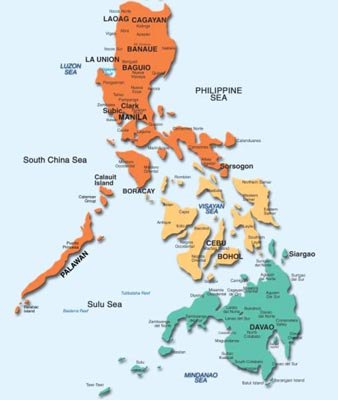Philippines calls for regional meeting on rice crisis
Los Baños, Philippines – The International Rice Research Institute (IRRI) is calling on the international community – with particular emphasis on donors – to start focusing on solutions to what’s being described as a “rice price crisis” in Asia and elsewhere.
The International Rice Research Institute (IRRI) is calling on the international community – with particular emphasis on donors – to start focusing on solutions to what’s being described as a “rice price crisis” in Asia and elsewhere.
The Institute’s Board of Trustees met this week at IRRI’s headquarters in the Philippine city of Los Baños, and looked at six key issues seen as vital to increasing rice production in Asia. Increased production is needed to ease the sharp rise in rice prices that has swept across the region, causing uncertainty and concern.
“The problems related to rice production and supply in Asia over the past year or more are cause for serious concern, but not for panic,” said Prof. Elizabeth Woods, the newly appointed chair of IRRI’s Board of Trustees.
“IRRI and its partners solved similar rice production problems in Asia in the 1960s and ?70s and we can do it again – what we need is the committed support of donors and policymakers as well as better awareness among the media and general public of the problems we face.”
The Institute is calling for increased focus – from both the public and private sectors – on the following six key areas:
1. An agronomic revolution in Asian rice production to reduce existing yield gaps. Farmers have struggled to maximize the production potential of the rice varieties they are growing, so there is a gap between potential yield and actual yield. Farmers must improve their crop management skills so they can better deal with higher input prices.
2. Accelerate the delivery of new postharvest technologies. Postharvest includes the storing, drying, and processing of rice. Exciting new technologies exist for on-farm storage and drying that are not being widely used. The use of old, inadequate technologies causes major postharvest losses in rice.
3. Accelerate the introduction of higher yielding rice varieties. New varieties exist that could increase production, but farmers are not using them mainly because the systems that develop and introduce new varieties to farmers are under-resourced.
4. Strengthen and upgrade the rice breeding and research pipelines. Funding for the development of new rice varieties has steadily declined over the past decade or more, and this must be reversed. Likewise, record high fertilizer prices and new pest outbreaks demand that rice crop and resource management research be urgently revitalized.
5. Accelerate research on the world’s thousands of rice varieties so scientists can tap the vast reservoir of untapped knowledge they contain. Working with IRRI, the nations of Asia have spent decades carefully collecting the region’s thousands of rice varieties. More than 100,000 rice varieties are now being carefully managed and used at IRRI and in Asian nations. However, scientists have studied in detail only about 10 percent of these varieties. We need to urgently learn more about the other 90 percent so they can be used in the development of new rice varieties.
6. Develop a new generation of rice scientists and researchers for the public and private sectors. Another vital concern for the Asian rice industry is the education and training of young scientists and researchers from each rice-producing country. Asia urgently needs to train a new generation of rice scientists and researchers before the present generation retires.
IRRI board member and Philippine Secretary of Agriculture Arthur C. Yap used the meeting at IRRI to call for a ministerial-level meeting of Asian nations to discuss the global rice situation. He said the meeting should include developed and developing countries and focus on increased collaboration to deal with the problems facing rice production and the need for increased food aid in the interim.
“We must address the plight of food-poor families in the countries most affected by the rice price crisis,” Secretary Yap said.
Prof. Woods added, “The problems facing rice production in Asia are not unique to one country; they are shared by nearly all the rice-consuming nations of Asia. We need to work together to find the right solutions. We must also recognize the global scale of the problem, especially the fact that many African nations depend on Asian rice production for their food security.” (ANI)